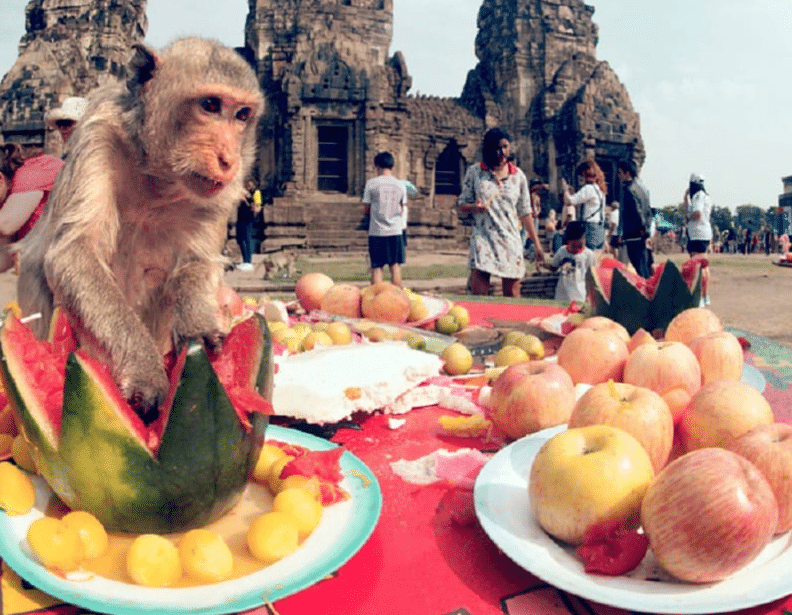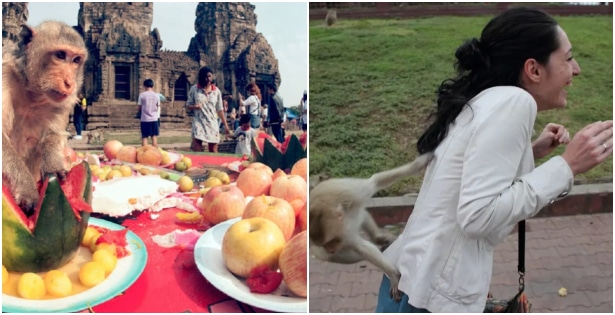Every November, tourists from Thailand and abroad come to see 2,000 macaques gorge on a spectacular buffet during the Monkey Buffet Festival.
The most well-known residents of the Thai town of Lopburi, where hundreds of them roam freely among residents and tourists, are long-tailed macaques.
The deity Lord Rama and his friend Lord Hanuman, a god with the appearance of a monkey, created the ancient town of Lopburi, according to the Thai adaptation of the Hindu epic Ramayana.
READ ALSO: Meet the intriguing Wodaabe tribe in Niger that hosts a wife-stealing festival
Some Lopburi inhabitants view the macaques as holy animals and descendants of Hanuman because the majority of the macaques in the town lived in and around the old temples.
Despite their antics, including biting through utility cables, locals feed the monkeys all year long in the hope that it will bring luck to Lopburi and its inhabitants.

The monkey buffet festival is to bring good luck
A local Thai businessman staged the first Monkey Buffet Festival in 1989 to help spread that illusive good fortune and draw more visitors to the area.
It was successful because the festival featuring the antics of the monkeys has developed into a popular destination for both Thai and foreign tourists as well as the local populace.
Dances, live performances, and, of course, a spectacular monkey tea party with two tonnes of food, including bananas, cucumbers, eggs, chocolates, and soft beverages, are among the events.
Every year on the final Sunday in November, which falls on November 27 in 2022, the monkey buffet festival is held.
After a formal opening ceremony, there are often four banquets that day that happen at four different times: at 10 am, 12 am, 2 pm, and 4 pm.
Kenya and Tanzania’s Maasai Tribe Spit Greeting
Meanwhile, it is common knowledge that the act of Spitting either shows annoyance, disdain, disagreement, or anything unpleasant in the eyes of multiple cultures and traditions worldwide.
Spitting, in many cultures, is considered an unhealthy uncivilized gesture. However, the Maasai tribe of Kenya and northern Tanzania have a dissenting view.
Despite making up just approximately 1% of the population, the Maasai tribe is well-known on a global scale and is now a popular tourist destination.





